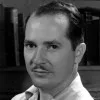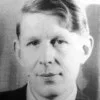We have already discovered two species that are very intelligent but technically less advanced than us — the common chimpanzee and pygmy chimpanzee. Has our response been to sit down and try to communicate with them? Of course not. Instead we shoot them, stuff them, dissect them, cut off their hands for trophies, put them on exhibit in cages, inject them with AIDS virus as a medical experiment, and destroy or take over their habitat.
That response was predictable, because human explorers who discovered technically less advanced humans also regularly responded by shooting them, decimating their populations with new diseases, and destroying or taking over their habitat. Any advanced extraterrestrials who discovered us would surely treat us in the same way. […]
Think again of those astronomers who beamed radio signals into space from Arecibo, describing Earth’s location and its inhabitants. In its suicidal folly that act rivalled the folly of the last Inca emperor, Atahualpa, who described to his gold-crazy Spanish captors thewealth of his capital and provided them with guides for the journey. If there really are any radio civilizations within listening distance of us, then for heaven’s sake let’s turn off our own transmitters and try to escape detection, or we are doomed.
Quotations about:
human
Note not all quotations have been tagged, so Search may find additional quotes on this topic.
Besides, there are two things that will be believed of any man whatsoever, and one of them is that he has taken to drink.
General, your tank
is a powerful vehicle
it smashes down forests
and crushes a hundred men.
but it has one defect:
it needs a driver.
A human being should be able to change a diaper, plan an invasion, butcher a hog, conn a ship, design a building, write a sonnet, balance accounts, build a wall, set a bone, comfort the dying, take orders, give orders, cooperate, act alone, solve equations, analyze a new problem, pitch manure, program a computer, cook a tasty meal, fight efficiently, die gallantly.
You never see animals going through the absurd and often horrible fooleries of magic and religion. … Dogs do not ritually urinate in the hope of persuading heaven to do the same and send down rain. Asses do not bray a liturgy to cloudless skies. Nor do cats attempt, by abstinence from cat’s meat, to wheedle the feline spirits into benevolence. Only man behaves with such gratuitous folly. It is the price he has to pay for being intelligent but not, as yet, quite intelligent enough.
“Fast and stupid is still stupid. It just gets to stupid a lot quicker than humans could on their own. Which, I admit, is an accomplishment,” she added, “because we’re pretty damn good at stupid.”
It behooves all men who wish to excel the other animals to strive with might and main not to pass through life unheralded, like the beasts, which Nature has fashioned groveling and slaves to the belly. All our power, on the contrary, lies in both mind and body; we employ the mind to rule, the body rather to serve; the one we have in common with the Gods, the other with the brutes. Therefore I find it becoming, in seeking renown, that we should employ the resources of the intellect rather than those of brute strength, to the end that, since the span of life which we enjoy is short, we may make the memory of our lives as long as possible.
[Omnis homines qui sese student praestare ceteris animalibus summa ope niti decet ne vitam silentio transeant veluti pecora, quae natura prona atque ventri oboedientia finxit. Sed nostra omnis vis in animo et corpore sita est; animi imperio, corporis servitio magis utimur; alterum nobis cum dis, alterum cum beluis commune est. Quo mihi rectius videtur ingeni quam virium opibus gloriam quaerere et, quoniam vita ipsa qua fruimur brevis est, memoriam nostri quam maxume longam efficere.]
Sallust (c. 86-35 BC) Roman historian and politician [Gaius Sallustius Crispus]
Bellum Catilinae [The War of Catiline; The Conspiracy of Catiline], ch. 1, sent. 1-3 [tr. Rolfe (1931)]
(Source)
Original Latin. Alt. trans.:"To maintain the dignity of human nature is the true ambition of man; and to that end it becomes the duty of all, who aspire to distinguish themselves from the race of inferior animals, to exert their most strenuous efforts, lest they pass their days in silence, like the herds of the field, formed by nature prone to the earth, and governed altogether by the incitements of appetite. Man is composed of mind and body, and in the exercise of both consists the energy of his nature. The mind is the directing principle; the body is subservient. The former we participate with the gods; the latter we hold in common with the brute creation. Hence the fame acquired by our intellectual powers has ever appeared to me the truest glory, far superior to all that can be achieved by mere corporeal vigor; and since the life we enjoy is frail and transitory, it should be the endeavour of every man to extend his fame, and leave a lasting memorial of his existence." [tr. Murphy (1807)]"Men who would act up to the dignity of their nature ought not to pass their lives in obscurity, like the beasts of the field, formed with bodies prone to the earth, and under necessary subjection to their appetites. Now, our faculties are twofold; those of the soul, and those of the body: the soul was designed for sovereign command, the body for subjection: the former we enjoy in common with the gods, the latter with the brute creation. So that to me it appears more agreeable to nature to pursue glory by the abilities of the mind than those of the body; and as our lives are but of short duration, it should be our study to render our memory immortal." [tr. Rose (1831)]"It becomes all men, who are anxious that they should excel other animals, to strive with their utmost might that they may not pass their life in silence like cattle, which nature has formed with their faces downwards, and slaves to their belly. But all our vigour is placed in the mind and in the body. We for the most part make use of the government of the mind, the submission of the body. The one we have in common with the gods, and the other with brutes. Wherefore it appears to me more proper to seek for glory by the abilities of the mind rather than by those of mere force; and since that life which we enjoy is short, to make the memory of ourselves as lasting as possible." [Source (1841)]"It becomes all men, who desire to excel other animals, to strive, to the utmost of their power, not to pass through life in obscurity, like the beasts of the field, which nature has formed groveling and subservient to appetite. All our power is situated in the mind and in the body. Of the mind we rather employ the government; of the body, the service. The one is common to us with the gods; the other with the brutes. It appears to me, therefore, more reasonable to pursue glory by means of the intellect than of bodily strength, and, since the life which we enjoy is short, to make the remembrance of us as lasting as possible." [tr. Watson (1867)]"Every man who is anxious to excel the lower animals should strive with all his power not to pass his life in obscurity like the brute beasts, whom nature has made the grovelling slaves of their belly. Now our whole ability resides jointly in our mind and body. In the case of the mind it is its power of guidance, in the case of the body its obedient service that we rather use, sharing the former faculty with the gods, the latter with the brute creation. This being so, I think it right to seek repute by my powers rather of intellect than of strength, and since the very life which we enjoy is short, to make the memory of us as abiding as may be." [tr. Pollard (1882)]"All persons who are enthusiastic that they should transcend the other animals ought to strive with the utmost effort not to pass through a life of silence like the cattle, which nature has fashioned to be prone and obedient to their stomachs. Our entire power resides in the mind as well as the body: we use the mind to command, the body to serve; the former we share wit the gods, the latter with the beasts. Therefore it seems to me more correct to seek glory with our intellectual rather than with our physical resources, and, because the very life that we enjoy is short, to ensure that a recollection of ourselves lasts as long as possible. [tr. Woodman (2007)]
Because your own strength is unequal to the task, do not assume that it is beyond the powers of man; but if anything is within the powers and province of man, believe that it is within your own compass also.
[Μή, εἴ τι αὐτῷ σοὶ δυσκαταπόνητον, τοῦτο ἀνθρώπῳ ἀδύνατον ὑπολαμβάνειν, ἀλλ̓ εἴ τι ἀνθρώπῳ δυνατὸν καὶ οἰκεῖον, τοῦτο καὶ σεαυτῷ ἐφικτὸν νόμιζε.]
Marcus Aurelius (AD 121-180) Roman emperor (161-180), Stoic philosopher
Meditations, Book 6, #19 [tr. Rendall (1901 ed.)]
(Source)
Original Greek. Alternate translations:
- "Do not ever conceive anything impossible to man, which by thee cannot, or not without much difficulty be effected; but whatsoever in general thou canst Conceive possible and proper unto any man, think that very possible unto thee also." [tr. Casaubon (1634), #18]
- "Because you find a Thing very difficult, don't presently conclude that no Man can master it. But whatever you observe proper, and practicable by Another, believe likewise within your own power." [tr. Collier (1701)]
- "If a thing is difficult to be accomplished by thyself, do not think that it is impossible for man: but if anything is possible for man and conformable to his nature, think that this can be attained by thyself too." [tr. Long (1862)]
- "Because you find a thing very difficult, do not at once conclude that no man can master it. But whatever you observe proper and practicable by another, believe likewise within your power." [tr. Zimmern (1887)]
- "Do not think that what is hard for thee to master is impossible for man; but if a thing is possible and proper to man, deem it attainable by thee." [tr. Morgan, in Bartlett's Familiar Quotations (1894)]
- "Because thou findest a thing difficult for thyself to accomplish do not conceive it to be impracticable for others; but whatever is possible for a man and in keeping with his nature consider also attainable by thyself." [tr. Haines (1916)]
- "Do not because a thing is hard for you yourself to accomplish, imagine that it is humanly impossible: but if a thing is humanly possible and appropriate, consider it also to be within your own reach." [tr. Farquharson (1944)]
- "Because a thing is difficult for you, do not therefore suppose it to be beyond mortal power. On the contrary, if anything is possible and proper for men to do, assume that it must fall within your own capacity." [tr. Staniforth (1964)]
- "Not to assume it's impossible because you find it hard. But to recognize that if it's humanly possible, you can do it too." [tr. Hays (2003)]
- "If something is difficult for you to accomplish, do not then think it impossible for any human being; rather, if it is humanly possible and corresponds to human nature, know that it is attainable by you as well." [tr. Needleman/Piazza (2008)]
Evil is unspectacular and always human
And shares our bed and eats at our own table.












